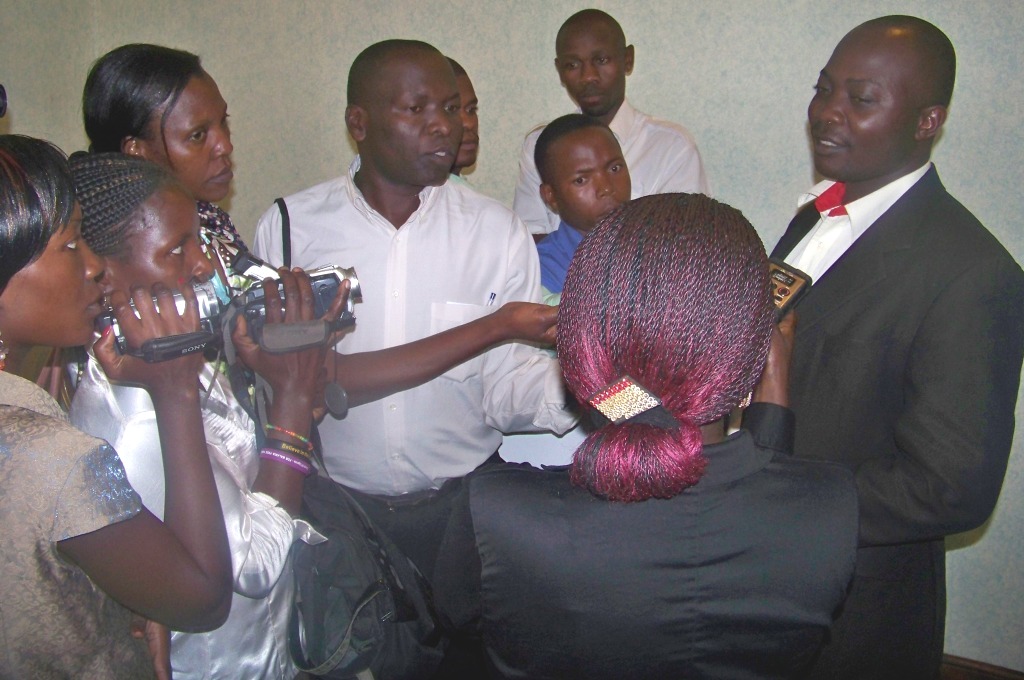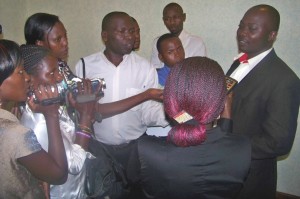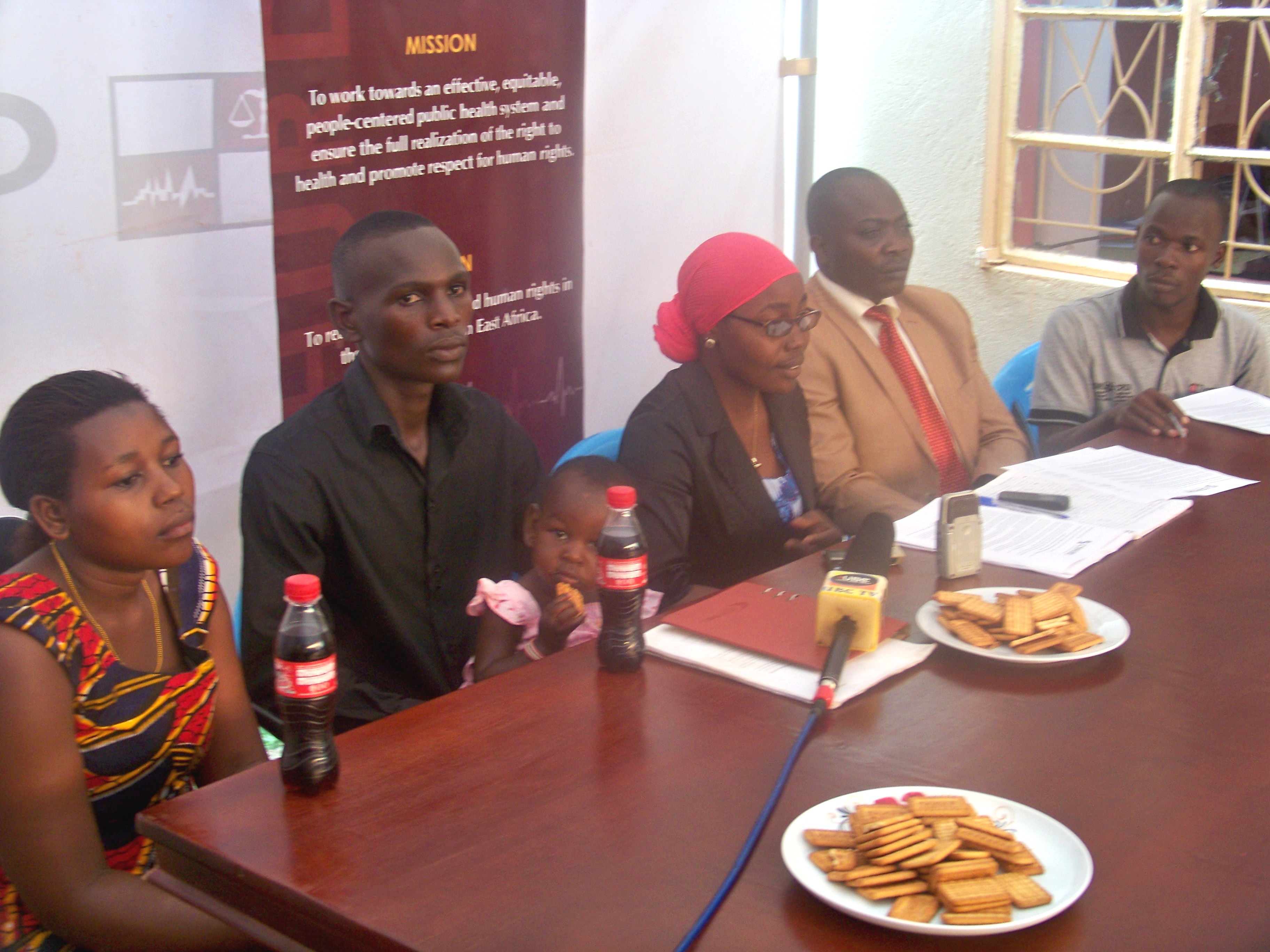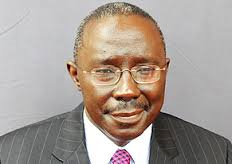By Ronald Musoke
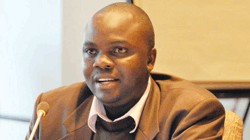 Two years ago the Center for Health, Human Rights and Development (CEHURD) filed a petition in the Constitutional Court seeking to secure a declaration that non-provision of essential maternal health commodities in government health facilities leading to the deaths of thousands of expectant mothers is an infringement on the right to health of the mothers.
Two years ago the Center for Health, Human Rights and Development (CEHURD) filed a petition in the Constitutional Court seeking to secure a declaration that non-provision of essential maternal health commodities in government health facilities leading to the deaths of thousands of expectant mothers is an infringement on the right to health of the mothers.
On Sept.20, the Supreme Court met to hear CEHURD’s petition on whether the case merits being heard in the Courts of law. After waiting for months for the Supreme Court to get fully constituted, the appeal could not proceed again because this time, Patricia Mutesi, the Principal State Attorney, was indisposed.
Justice Benjamin Odoki adjourned the case until the next session scheduled for early next year. The CEHURD Executive Director, Moses Mulumba told The Independent’s Ronald Musoke why this case remains important.
In 2011, CEHURD alongside other civil society bodies took the government to court over its failure to provide basic commodities to expectant mothers in government health facilities. Why did you choose to take this course of action?
The value of this petition was to bring forward the judiciary as the third arm of government to address maternal mortality which is not only a public health issue but also a human rights concern.
In our minds, we are sure that the judiciary has a critical role to play in instances where either a government act or omission leads to violation of rights. In addition, much as litigation was happening in many other areas including the right to life, freedom from torture, inhuman and degrading treatment, rights of the children, right to education, the right to health seemed to be one of the isolated areas of litigation and there was hardly any precedents and court pronouncements on the right to health. Thus the petition was filed as an opportunity for the judiciary to clarify on the normative content of the right to health in Uganda.
How is the government’s failure to provide expectant mothers with basic health care an infringement on their fundamental human rights?
The normative content of the right to health creates three obligations on the part of government; including the obligations to respect, protect and fulfill. The obligation to respect for instance requires government to refrain from interfering directly or indirectly with the enjoyment of human rights and this would call for ensuring the provision of services to all the population groups on the basis of equality and freedom from discrimination paying particular attention to the vulnerable and marginalized groups.
On the other hand, the obligation to fulfill requires government to adopt appropriate measures towards full realisation of the rights such as providing appropriate legislative, administrative or budgetary measures towards the full realisation of human rights.
If we apply this framework on providing basic health care to expectant mothers, it means that the government needs to provide a number of things including basic maternal health commodities to enable mothers have safe deliveries. You should note that I am using the word BASIC.
This is because under the human rights obligations we do not expect government to provide beyond what it can afford but it must define the basics and under the Health Sector Strategic Plan, basic maternal health commodities were spelt out as part of the minimum health care package which the citizens of Uganda must receive. Therefore the failure to provide these is an infringement on the fundamental human rights of mothers who die while giving birth.
Of what significance was your petition in the Constitutional Court?
The petition was the first of its kind to engage the court to make declarations on the right to health. The judges went ahead to appreciate the petition and noted that they appreciate the issues raised by the petitioners regarding the unsatisfactory provision of basic maternal health services towards expectant mothers and also highlighted the fact that such issues can be litigated upon through other legal alternatives such as enforcement of rights through the high court.
This is great jurisprudence and as history has shown in other jurisdiction where the right to health is litigated, it’s such small victories that have later turned into major successes. I must also say it again, that not getting into the facts of the petition will be a missed opportunity for the courts to pronounce themselves on this important matter that touches many lives of Ugandans.
The Constitutional Court quashed your petition. What did you make of the verdict?
I think we need to look at the Constitutional Court’s ruling from a number of perspectives. First we never got into the merits of the case but rather the court upheld a preliminary objection. We have since appealed to the Supreme Court and I would not discuss the details of the objection as it would be sub-judice.
All I can say is that by the court upholding this objection; it misses a great opportunity to clarify on the legal status of the right to health broadly and maternal health especially as human rights aspects. Even then, the successes already had on raising more discussion on this issue from a legal/human rights perspective are enormous and I would be more comfortable commenting further once the Supreme Court appeal has been disposed off.
Can litigation bring about change in Uganda’s healthcare system?
Definitely. Litigation is a great tool for social mobilisation and can be a fantastic wake up call on the part of government especially; to act on its obligations which are in the constitution and part of the international and regional legal frameworks the government has committed to respect.
The other issue is to look at the role of the judiciary which relates to the principle of checks and balances which are imperative in holding the executive accountable on its policies, programmes and actions. Indeed the results of just filing this case are very visible as it was the first time we as civil movements had to engage with government more constructively to discuss the issue of maternal mortality as a human rights aspect.
We are seeing a lot of attention towards maternal health more than before. For instance maternal audits are now a major focus and the recruitment of more midwives either directly of remotely are resulting from this action. We therefore think that litigation plays a critical part in a health care system but it’s just one of the many approaches towards changing a health care system.
The rights of other sections of the population (men, children, the elderly, and people with disabilities) have equally been trampled upon by Uganda’s failing health care system. Why do you think women’s human rights are far more significant?
I do not think that women’s rights are far more important. I think all rights of all groups are equally important. There are so many groups addressing these other violations. So our approach just made women’s rights as a case study which can inform other movements working on rights of other groups.
Source: http://www.independent.co.ug/interviews/interview/8345-denying-health-care-basics-to-ugandas-expectant-mothers-is-an-abuse-of-their-human-rights


